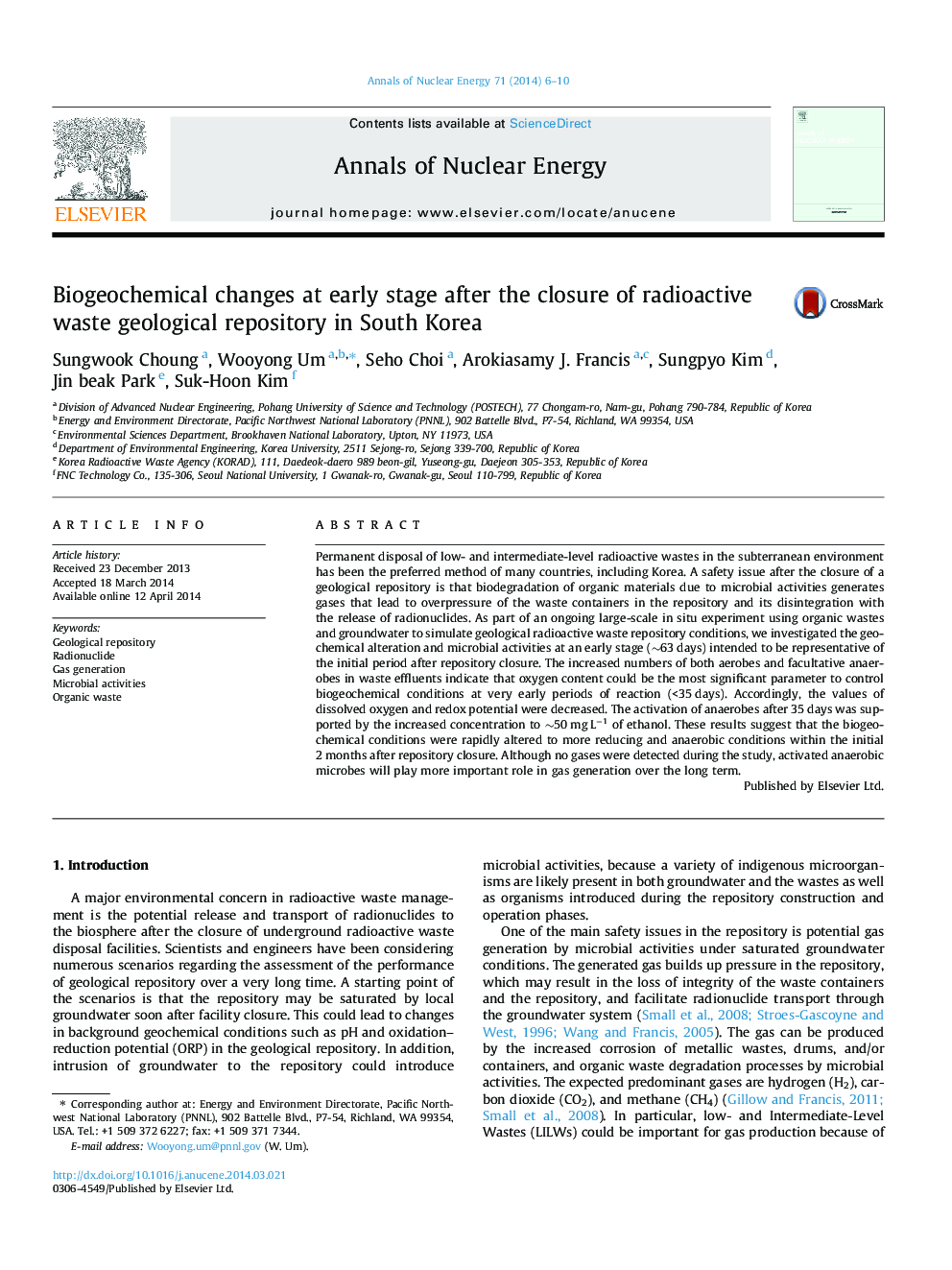| کد مقاله | کد نشریه | سال انتشار | مقاله انگلیسی | نسخه تمام متن |
|---|---|---|---|---|
| 1728249 | 1521127 | 2014 | 5 صفحه PDF | دانلود رایگان |
• We conducted large scale on-site gas generation experiments.
• Biogeochemical alteration by microbial activities was evaluated for 63 days.
• Aerobes and facultative anaerobes were proliferated within 35 days.
• Anaerobes were activated between 35 and 63 days.
• Microbial activities changed geochemical conditions to reducing and anaerobic conditions.
Permanent disposal of low- and intermediate-level radioactive wastes in the subterranean environment has been the preferred method of many countries, including Korea. A safety issue after the closure of a geological repository is that biodegradation of organic materials due to microbial activities generates gases that lead to overpressure of the waste containers in the repository and its disintegration with the release of radionuclides. As part of an ongoing large-scale in situ experiment using organic wastes and groundwater to simulate geological radioactive waste repository conditions, we investigated the geochemical alteration and microbial activities at an early stage (∼63 days) intended to be representative of the initial period after repository closure. The increased numbers of both aerobes and facultative anaerobes in waste effluents indicate that oxygen content could be the most significant parameter to control biogeochemical conditions at very early periods of reaction (<35 days). Accordingly, the values of dissolved oxygen and redox potential were decreased. The activation of anaerobes after 35 days was supported by the increased concentration to ∼50 mg L−1 of ethanol. These results suggest that the biogeochemical conditions were rapidly altered to more reducing and anaerobic conditions within the initial 2 months after repository closure. Although no gases were detected during the study, activated anaerobic microbes will play more important role in gas generation over the long term.
Journal: Annals of Nuclear Energy - Volume 71, September 2014, Pages 6–10
